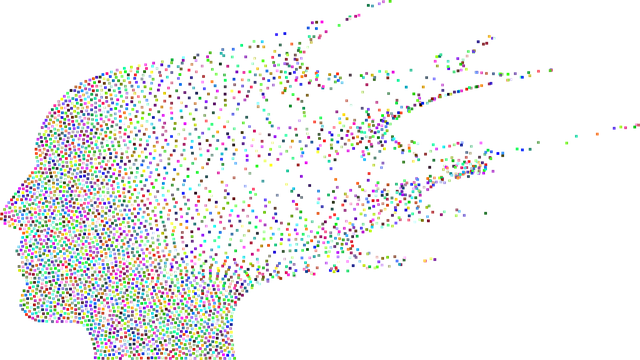Positive thinking and exercise are powerful tools for enhancing mental well-being in young adults facing adulthood, college, or career transitions. Therapy targeting spiritual-religious issues is crucial for addressing emotional wellness challenges, incorporating exercises that reduce stress and improve emotional regulation. Combining mindfulness, gratitude journaling, art therapy, and nature walks creates inclusive environments where young adults can explore their emotions safely. Integrating spiritual practices into therapy fosters deeper connection and understanding, leading to improved mood management and mental health outcomes. Public awareness campaigns destigmatizing these approaches make them more accessible for young adults seeking support.
“Unleash the power of positive thinking for young adults! This article explores the profound impact of cultivating optimism, particularly within the context of modern spiritual-religious issues. We delve into the science behind its benefits for mental health and introduce practical exercises tailored for this demographic.
From understanding the concept to designing effective therapy programs, we cover everything. Learn how exercise acts as a catalyst for positive change and discover innovative ways to integrate spiritual and religious elements, offering holistic support for young adults’ well-being.”
- Understanding Positive Thinking and Its Impact on Young Adults
- Identifying Spiritual-Religious Issues in the Modern World
- The Role of Exercise in Promoting Positive Mental Health
- Designing Effective Positive Thinking Exercises for Young Adults
- Integrating Spiritual and Religious Elements into Therapy Programs
Understanding Positive Thinking and Its Impact on Young Adults

Positive thinking is a powerful tool that can significantly impact young adults’ mental well-being and overall life satisfaction. This concept encourages individuals to focus on optimistic perspectives, reframing negative thoughts into more positive and constructive ones. For young adults navigating the challenges of adulthood, college, or career transitions, cultivating positive thinking can be transformative. It helps build resilience against stress, anxiety, and depression, which are prevalent issues among this demographic.
By adopting positive thinking exercises, young adults can enhance their emotional regulation skills. These practices, often incorporated into therapy for young adults addressing spiritual-religious issues, offer effective stress reduction methods. Moreover, they contribute to confidence boosting and improved decision-making abilities. Mental health professionals can play a vital role in guiding individuals through risk assessment and teaching them sustainable positive thinking habits, thereby fostering better mental health outcomes.
Identifying Spiritual-Religious Issues in the Modern World

In the modern world, identifying spiritual-religious issues among young adults has become increasingly important as these aspects play a significant role in their emotional regulation and mental wellness. Many young individuals seek therapy for young adults to address feelings of disconnection, uncertainty, or conflict related to their spiritual beliefs and religious backgrounds. This is particularly evident in diverse societies where cultural and faith-based traditions are ever-evolving.
Understanding and integrating spiritual-religious dimensions into therapeutic practices help foster resilience building among young adults. By recognizing the profound impact of these issues on mental health, therapists can create safe spaces for clients to explore their unique spiritual journeys. This approach not only enhances emotional regulation but also empowers individuals to navigate life’s challenges with greater purpose and meaning, ultimately contributing to improved overall well-being.
The Role of Exercise in Promoting Positive Mental Health

Exercise plays a pivotal role in promoting positive mental health, particularly for young adults grappling with spiritual-religious issues. Physical activity acts as a form of therapy, helping to alleviate stress, anxiety, and depression by releasing endorphins, which are natural mood lifters. Regular workouts can significantly improve one’s overall well-being, providing an effective means to manage and maintain mental health.
Incorporating exercise into daily routines fosters inner strength development, enabling individuals to navigate their spiritual journeys with resilience. Moreover, engaging in physical activities can offer a sense of accomplishment and purpose, redirecting focus from negative thoughts towards achievable goals. This process is particularly beneficial for those seeking alternative therapies beyond conventional treatments, such as those interested in mental wellness podcast series production or exploring holistic approaches like therapy for young adults with spiritual-religious concerns.
Designing Effective Positive Thinking Exercises for Young Adults

Designing positive thinking exercises for young adults requires a nuanced approach that balances engagement with relevance and sensitivity. Incorporating practices such as mindfulness meditation, gratitude journaling, and constructive reframing can help foster resilience building and promote self-care practices among this demographic. These exercises should be tailored to address common challenges faced by young adults, including navigating uncertainty, managing stress, and overcoming spiritual-religious issues.
The key lies in creating inclusive environments where participants feel safe to explore their thoughts and emotions without judgment. Incorporating creative elements like art therapy or nature walks can make these sessions more engaging, while encouraging open dialogue facilitates the sharing of experiences. Public awareness campaigns development centered around positive thinking can further empower young adults by providing accessible tools for coping with life’s challenges, thereby enhancing overall mental well-being.
Integrating Spiritual and Religious Elements into Therapy Programs

Incorporating spiritual and religious elements into therapy programs for young adults can significantly enhance their effectiveness in addressing issues related to mental wellness. Many young adults find solace and meaning through their faith, which can be a powerful tool in the healing process. By integrating spiritual practices such as prayer, meditation, or religious rituals, therapists create a more inclusive environment that resonates with individuals who may not typically associate traditional therapy with their personal beliefs. This approach can foster a deeper sense of connection and understanding, leading to improved mood management and overall mental health.
Guiding young adults in engaging with their spiritual-religious practices as part of structured therapy sessions or even through journaling exercises can provide valuable insights into their emotional states. For instance, prompting them to reflect on how their faith influences their daily thoughts and actions within a safe and non-judgmental space encourages self-awareness. This practice, combined with professional guidance, supports the development of positive thinking patterns and coping mechanisms tailored to each individual’s unique spiritual or religious framework. Additionally, public awareness campaigns that highlight the benefits of combining therapy with spiritual-religious practices can help destigmatize these approaches, making them more accessible for young adults seeking support.
Positive thinking exercises, when tailored specifically for young adults, can be a powerful tool in enhancing mental well-being. By integrating spiritual and religious elements into therapy programs, we can create comprehensive support systems that address the unique challenges faced by this demographic. The benefits of such an approach are multifaceted, promoting not only positive thinking but also fostering resilience and a deeper sense of purpose. With the right implementation, these exercises have the potential to revolutionize therapy for young adults, guiding them towards a brighter and more optimistic future.








